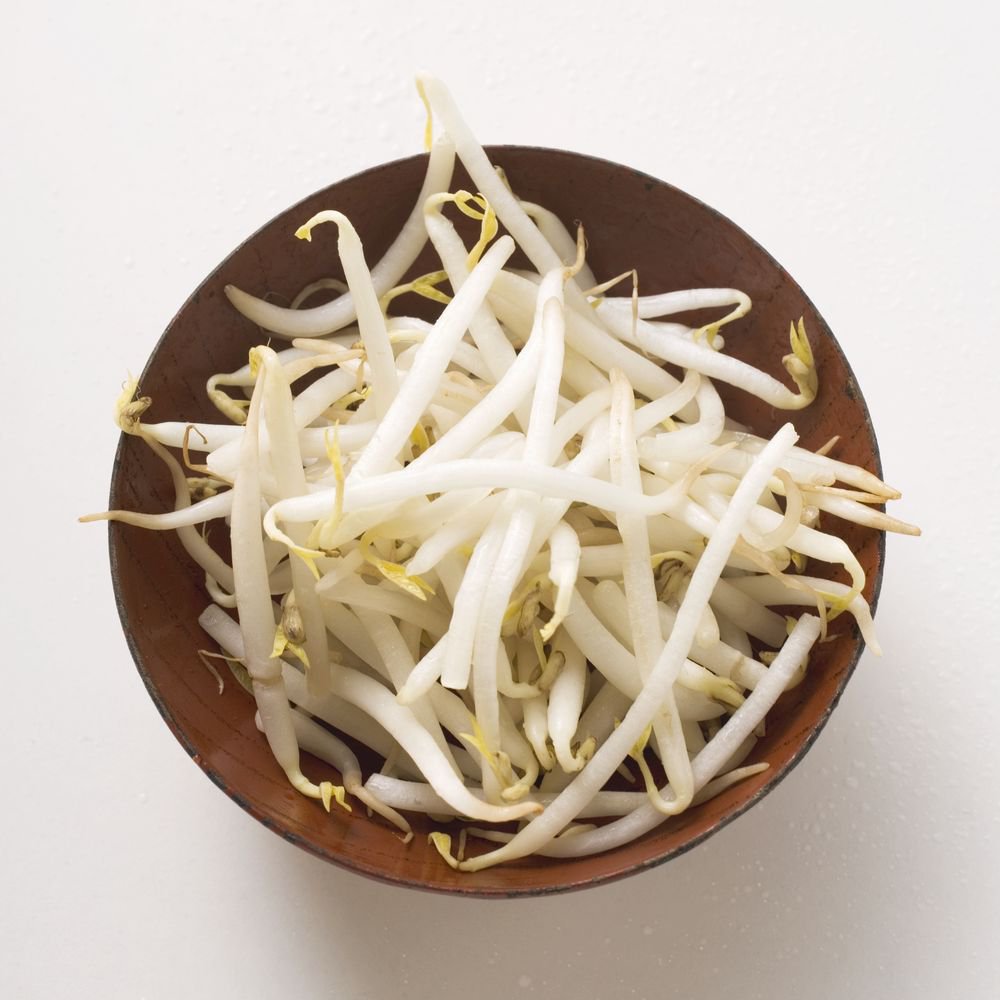Soy is an alternative source of protein
Many diets prohibit meat (red or white): vegetarians, vegans, hypocholesterolemic ... Studies conducted on the protein content of soy have been successful in showing that soybean, in all its forms, was an excellent source of protein, which would meet the nutritional needs of these restrictive animal protein diets. Composed of amino acids essential to the proper functioning of the body, these complete proteins are involved in several metabolic processes: strengthening of the immune system, composition of muscle fibers, regeneration of tissues and organs ... Proteins represent one fifth of the total weight soy, making it a healthier option to cover the daily needs of low-protein diets.
Soy: a featherweight partner
Ideal during a diet low calorie, soy is invited to our tables to fill all the hungers. Thanks to its high protein content, soy offers a quick feeling of fullness, perfect for limiting the intake of extra calories and thus inducing weight loss. In milk, seeds or beans, soybeans provide different calorie inputs, which allow you to adapt your intake according to your needs: for every 100 grams, count 14 calories for soy sprouts, 54 calories for milk and yogurts, 329 for beans and 484 for seeds. Tofu, this soy paste obtained by curdling fermented soy milk is the best compromise: with 74 calories per 100 grams, it is light to help monitor its line, greedy, because it adapts in different ways ( grilled, in salad, in a pan-fried vegetable ...) and low in cholesterol.
Soy: an anti-aging ally?
And if soy was the privileged secret of Asian female populations to keep a fresh complexion and beauty without equal? The beneficial effects of soy for the conservation of metabolism have been demonstrated and, important factor of such effects, its trace element content recognized for their antioxidant actions is proven. Because of its high concentration of vitamin C and vitamin E (two major antioxidants), including soy in the diet can effectively fight against free radicals caused by poor lifestyle, stress or UV rays of the sun. These free radicals are responsible for the oxidative stress that acts on cell membranes. Soy is therefore an ideal partner for the preservation of these cells, thus limiting the risks associated with various coronary heart diseases, cancers and skin aging. It also prevents age-related neurodegenerative conditions, such as Alzheimer's. Low in cholesterol and rich in isoflavones, soy has the ability to lower blood triglyceride levels, allowing the proper functioning of the cardiovascular system. The main antioxidant of soy, genistein, is able to relax the blood vessels as a vasodilator.
Ideas received on soy
Hormonal bomb, early puberty, hardly digestible ...: soy suffers from many prejudices that push consumers to limit it in the diet. Yet widespread in Asia, soy and its derivatives are rarely found in western menus and certainly wrong. For a long time assimilated to a large intake of estrogen, soy does not provide more female hormones than most seeds or vegetables. It is not to proscribe in small boys contrary to the popular belief that soybean feminizes individuals. Soy is often sidelined from western food for its reputation as indigestible seeds. Yet soy proteins are perfectly assimilable by our body. This is a food to rediscover, for all the benefits it provides metabolism.
Many diets prohibit meat (red or white): vegetarians, vegans, hypocholesterolemic ... Studies conducted on the protein content of soy have been successful in showing that soybean, in all its forms, was an excellent source of protein, which would meet the nutritional needs of these restrictive animal protein diets. Composed of amino acids essential to the proper functioning of the body, these complete proteins are involved in several metabolic processes: strengthening of the immune system, composition of muscle fibers, regeneration of tissues and organs ... Proteins represent one fifth of the total weight soy, making it a healthier option to cover the daily needs of low-protein diets.
Soy: a featherweight partner
Ideal during a diet low calorie, soy is invited to our tables to fill all the hungers. Thanks to its high protein content, soy offers a quick feeling of fullness, perfect for limiting the intake of extra calories and thus inducing weight loss. In milk, seeds or beans, soybeans provide different calorie inputs, which allow you to adapt your intake according to your needs: for every 100 grams, count 14 calories for soy sprouts, 54 calories for milk and yogurts, 329 for beans and 484 for seeds. Tofu, this soy paste obtained by curdling fermented soy milk is the best compromise: with 74 calories per 100 grams, it is light to help monitor its line, greedy, because it adapts in different ways ( grilled, in salad, in a pan-fried vegetable ...) and low in cholesterol.
Soy: an anti-aging ally?
And if soy was the privileged secret of Asian female populations to keep a fresh complexion and beauty without equal? The beneficial effects of soy for the conservation of metabolism have been demonstrated and, important factor of such effects, its trace element content recognized for their antioxidant actions is proven. Because of its high concentration of vitamin C and vitamin E (two major antioxidants), including soy in the diet can effectively fight against free radicals caused by poor lifestyle, stress or UV rays of the sun. These free radicals are responsible for the oxidative stress that acts on cell membranes. Soy is therefore an ideal partner for the preservation of these cells, thus limiting the risks associated with various coronary heart diseases, cancers and skin aging. It also prevents age-related neurodegenerative conditions, such as Alzheimer's. Low in cholesterol and rich in isoflavones, soy has the ability to lower blood triglyceride levels, allowing the proper functioning of the cardiovascular system. The main antioxidant of soy, genistein, is able to relax the blood vessels as a vasodilator.
Ideas received on soy
Hormonal bomb, early puberty, hardly digestible ...: soy suffers from many prejudices that push consumers to limit it in the diet. Yet widespread in Asia, soy and its derivatives are rarely found in western menus and certainly wrong. For a long time assimilated to a large intake of estrogen, soy does not provide more female hormones than most seeds or vegetables. It is not to proscribe in small boys contrary to the popular belief that soybean feminizes individuals. Soy is often sidelined from western food for its reputation as indigestible seeds. Yet soy proteins are perfectly assimilable by our body. This is a food to rediscover, for all the benefits it provides metabolism.


